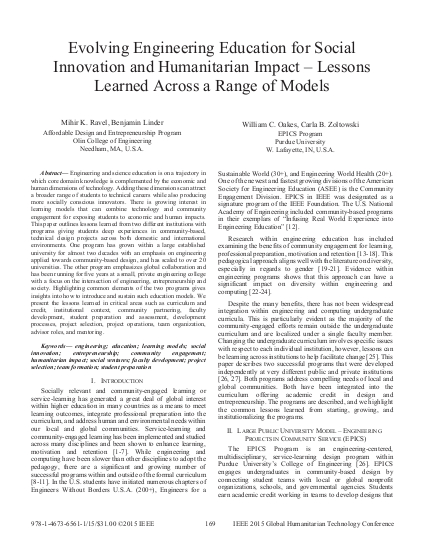
Engineering and science education is on a trajectory in which core domain knowledge is complemented by the economic and human dimensions of technology. Adding these dimensions can attract a broader range of students to technical careers while also producing more socially conscious innovators. There is growing interest in learning models that can combine technology and community engagement for exposing students to economic and human impacts. This paper outlines lessons learned from two different institutions with programs giving students deep experiences in community-based, technical design projects across both domestic and international environments. One program has grown within a large established university for almost two decades with an emphasis on engineering applied towards community-based design, and has scaled to over 20 universities. The other program emphasizes global collaboration and has been running for five years at a small, private engineering college with a focus on the intersection of engineering, entrepreneurship and society. Highlighting common elements of the two programs gives insights into how to introduce and sustain such education models. We present the lessons learned in critical areas such as curriculum and credit, institutional context, community partnering, faculty development, student preparation and assessment, development processes, project selection, project operations, team organization, advisor roles, and mentoring.
